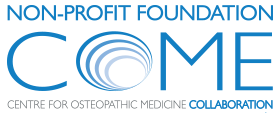Osteopathic manipulative treatment showed reduction of length of stay and costs in preterm infants: A systematic review and meta-analysis
BACKGROUND:
Osteopathic medicine is an emerging and complementary method used in neonatology.
METHODS:
Outcomes were the mean difference in length of stay (LOS) and costs between osteopathy and alternative treatment group. A comprehensive literature search of (quasi)- randomized controlled trials (RCTs), was conducted from journal inception to May, 2015. Eligible studies must have treated preterm infants directly in the crib or bed and Osteopathic Manipulative Treatment (OMT) must have been performed by osteopaths. A rigorous Cochrane-like method was used for study screening and selection, risk of bias assessment and data reporting. Fixed effect meta-analysis was performed to synthesize data.
RESULTS:
5 trials enrolling 1306 infants met our inclusion criteria. Although the heterogeneity was moderate (I = 61%, P = 0.03), meta-analysis of all five studies showed that preterm infants treated with OMT had a significant reduction of LOS by 2.71 days (95% CI -3.99, -1.43; P < 0.001). Considering costs, meta-analysis showed reduction in the OMT group (-1,545.66&OV0556;, -1,888.03&OV0556;, -1,203.29&OV0556;, P < 0.0001). All studies reported no adverse events associated to OMT. Subgroup analysis showed that the benefit of OMT is inversely associated to gestational age.
CONCLUSIONS:
The present systematic review showed the clinical effectiveness of OMT on the reduction of LOS and costs in a large population of preterm infants.







